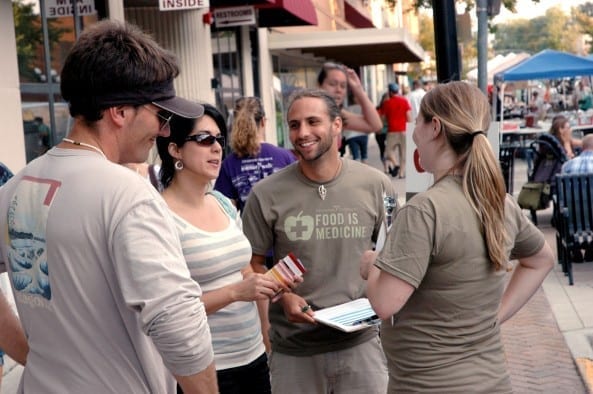

“Our hope is that by educating, people will take responsibility for their health.”
“We want to show people how easy it is to eat healthy, local and fresh, and that it can be inexpensive,” says Sabongi. “Our hope is that by educating, people will take responsibility for their health.”
The farmers’ market was a logical choice, supplying a cohort of consumers who are already interested in purchasing from local, organic farmers. In fact, the project was launched based on a similar program in California. Melita Marcial-Schuster, D.O., assistant professor of Family Medicine and “senior advisor” to the students, brought the idea to Sabongi after attending a nutrition and health conference.
“I thought it was a good idea and that it might work in Des Moines. Nutrition and exercise are a large component of our health, so this is a great way to get the students out in the public to promote it,” says Marcial-Schuster.
These students are interested in more than offering nutritious recipes and snacking tips. They view the project as a larger opportunity to help the community by promoting preventive medicine. With the rise in obesity and other diseases tied to eating unhealthy foods, there’s a big movement toward preventive health to help contain the epidemic while curbing health care costs.
“We need more prevention to combat disease. Everyone eats, so it’s an easy way to help people,” says Sabongi. “We must understand the way food is made, where it comes from, how animals are raised and how it all affects our bodies. Doctors need to serve as teachers to show patients the impact that food with simple, natural ingredients can have on health.”
The Food is Medicine booth made its debut at the farmers’ market in West Des Moines’ Valley Junction on Aug. 9. Armed with educational materials and overflowing with enthusiasm, the students will continue to share their healthy message at Des Moines’ Downtown Farmers’ Market and other area markets throughout the fall.

